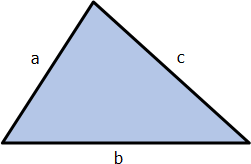partial derivative
Partial Derivatives
Let F be a function of several variables, say x, y, and z. In symbols,
$F = f(x, \, y, \, z)$.
The partial derivative of F with respect to x is denoted by
$\dfrac{\partial F}{\partial x}$
and can be found by differentiating f(x, y, z) in terms of x and treating the variables y and z as constants.
- Read more about Partial Derivatives
- Log in or register to post comments
Problem 04 | Exact Equations
- Read more about Problem 04 | Exact Equations
- Log in or register to post comments
Problem 03 | Exact Equations
- Read more about Problem 03 | Exact Equations
- Log in or register to post comments
Problem 02 | Exact Equations
- Read more about Problem 02 | Exact Equations
- Log in or register to post comments
Problem 01 | Exact Equations
- Read more about Problem 01 | Exact Equations
- Log in or register to post comments

